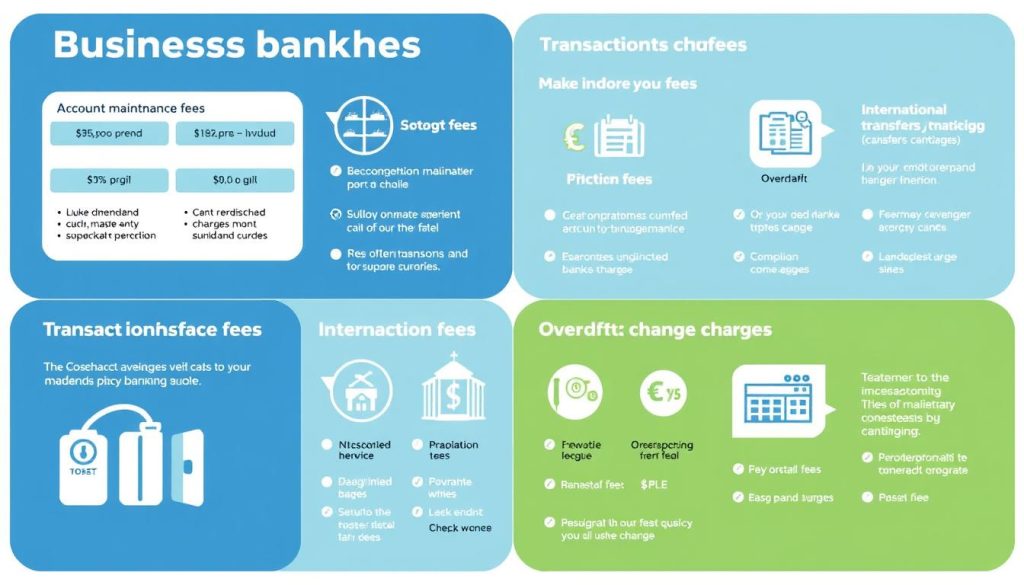This guide is here to help UK companies understand business banking in Sweden. Knowing the Swedish banking system is key for foreign businesses wanting to succeed here. By learning about local banking, UK companies can improve their financial management and take advantage of Sweden’s strong banking scene.
As you read on, you’ll find important information and useful tips for your business. These are designed to meet your specific needs.
Understanding the Swedish Banking System

The Swedish Banking System is known for its strong structure and big role in keeping the economy stable. It has different types of banks, like commercial, savings, and credit unions. Each one meets different customer needs and follows strict rules to be transparent and reliable.
The Financial Supervisory Authority, or Finansinspektionen, watches over the banks in Sweden. This group makes sure banks follow the law and act fairly. This helps keep the economy stable and builds trust among everyone involved.
In Sweden, banking is very digital, making services fast and keeping banks competitive. Using technology is key for banks to keep up with changing financial needs. Businesses need to choose the right bank to improve their financial plans.
Key Features of Business Banking in Sweden

Business banking in Sweden has special features to help businesses grow. It focuses on small and medium-sized enterprises (SMEs). These features show a strong support for SMEs.
Sweden’s banking puts a lot of effort into SME support. Banks offer special products for small businesses. These include flexible loans, dedicated managers, and financial advice.
Banking innovation is key in Sweden. Banks use new technology to make things easier. Customers get better online banking, mobile access, and updates on transactions.
- Integration of innovative digital solutions to improve user experience.
- High standards of customer service, ensuring responsive support.
- Customized financial solutions designed specifically for SMEs.
This focus on innovation makes banking better and more efficient. It also makes customers happier. Sweden is now a top place for business banking thanks to its modern tech and support for SMEs.
Choosing the Right Bank for Your Business

Finding the right bank is key for your business’s success in Sweden. The bank you choose affects your financial management and the services you need. It’s important to know what each major bank offers to find the best match for your business.
Comparing Major Banks in Sweden
Swedbank, Nordea, and SEB are top banks in Sweden. Each has benefits for different business needs:
- Swedbank: It has a wide network and a strong online banking system. It’s great for small and medium-sized businesses.
- Nordea: It offers customised financing and international services. This makes it a top choice for businesses looking to grow globally.
- SEB: It focuses on big businesses. It provides special services like investment banking and asset management.
Specialised Services for UK Companies
UK companies looking to start in Sweden can get help from special banking services. These services include:
- Help with currency exchange to manage risks.
- Customised financing options for foreign businesses.
- Advice to make sure you follow UK company rules.
Opening a Business Bank Account in Sweden

Starting a business in Sweden is exciting, but it starts with opening a business account. UK companies need to know the documents needed for a smooth application. Swedish banks offer different accounts to meet various business needs. This part explains the paperwork and account options for businesses.
Required Documentation for UK Companies
To apply for a business bank account in Sweden, you need specific documents. These include:
- Proof of registration with the Swedish Companies Registration Office.
- Identification for all signatories, like passports or national ID cards.
- Company bylaws or articles of association.
- Proof of address for the business in Sweden.
Having all the right documents ready will make opening the account easier.
Account Types for Different Business Needs
Swedish banks offer various accounts for different business needs. Some common ones are:
- Current Accounts: Great for daily transactions and managing costs.
- Savings Accounts: Good for saving for future growth or unexpected costs.
- Merchant Accounts: For businesses that need payment processing solutions.
Picking the right account can greatly improve a business’s efficiency and financial management in Sweden.
Navigating Regulations and Compliance

It’s crucial for businesses in Sweden to know about banking rules and following them. These rules help keep the banking world stable and honest. Following them makes your business look good and trustworthy in Sweden’s competitive market.
Key rules include:
- Anti-Money Laundering (AML) rules help stop illegal money activities.
- Know Your Customer (KYC) rules mean banks must check who their clients are and the risks they might pose.
- Following financial rules helps keep things clear and builds trust with others.
Not following these rules can cause big problems. You might face fines or damage to your reputation. So, UK companies need to focus on following these rules well when working in Sweden’s banking world.
Understanding Currency and Conversion Processes

In Sweden, the currency is called the Swedish Krona (SEK). It’s crucial for UK businesses in international trade and investment. Changes in currency value can greatly affect profits and costs. So, UK companies need good strategies to handle these risks.
How Currency Fluctuations Impact Your Business
Exchange rates change for many reasons. This includes economic news, world events, and market guesses. For UK businesses in Sweden, these changes can impact costs of goods, labour, and prices.
If the Swedish Krona drops against the British Pound, costs for UK firms go up. But, if it rises, costs can fall. Knowing this helps reduce the business impact.
Handling Foreign Exchange Transactions
Dealing with foreign exchange can be tricky. Businesses use different ways to handle currency conversion:
- Spot transactions, offering immediate delivery at current market rates.
- Forward contracts, allowing businesses to lock in exchange rates for future transactions.
- Options contracts, providing the right, but not the obligation, to exchange currencies at predetermined rates.
Using hedging strategies can also reduce risks from currency changes. Knowing these options helps UK businesses deal with currency in Sweden better.
Business Banking Fees and Charges

It’s key to know the fees linked to business accounts for good financial management. In Sweden, businesses face different fees that can affect their finances. Knowing these costs helps in budget planning and expense forecasting.
Typical Fees Associated with Business Accounts
When you open a business bank account in Sweden, you should know about common fees:
- Monthly maintenance fees for account upkeep
- Transaction costs for each withdrawal or deposit
- Fees for cheque processing
- Costs for extra services like overdrafts or special account features
These fees change with each bank, so it’s vital to compare when choosing a bank.
Understanding International Transfer Costs
Businesses doing international transfers face extra costs. These can impact their financial plans. The fees for international transfers include:
- Flat fees for processing international payments
- Percentage fees based on the amount transferred
- Currency conversion costs that change with market rates
Knowing these costs helps businesses manage their expenses when working across borders. Being aware of fees helps avoid unexpected costs and keeps finances smooth.
Managing Business Finances Effectively

Effective financial management is key for any business in Sweden. It involves several important strategies. These help your business grow and stay strong.
Budgeting is a crucial part of finance management. It helps businesses plan how to spend their money. By setting a budget, you can make smart choices about where to use your resources.
Cash flow management is also vital. It keeps your business liquid. Regularly checking cash flow statements helps you stay on top of your finances. This way, you can plan for the future.
Financial planning is another essential part. It helps you set long-term goals and plan how to reach them. Regularly reviewing your plans keeps your business flexible and strong.
- Implement budgeting practices to track and manage expenses.
- Monitor cash flow consistently to identify trends and potential issues.
- Engage in thorough financial planning to set achievable long-term objectives.
Leveraging Digital Banking Solutions

Digital banking has changed how businesses handle money. It brings many benefits that make things more efficient and easy. For UK entrepreneurs in Sweden, online and mobile banking are key. They help make financial tasks smoother.
Online Banking Features for Efficient Management
Online banking has many features to make business tasks simpler. Some of these include:
- Instant access to account info, so you can watch your finances in real-time.
- Automated tracking of transactions, helping you manage your cash flow better.
- Integration with accounting software, making it easier to handle invoices and payments.
- 24/7 access to banking services, so you can manage your finances whenever you want.
Mobile Banking Benefits for UK Entrepreneurs
Mobile banking has special perks for entrepreneurs who are always on the move. Some of these benefits are:
- It’s easy to manage your finances anywhere, which is great for entrepreneurs who are always busy.
- Push notifications for account activity, so you know right away about any transactions or changes in your balance.
- Strong security features, like biometric authentication, to keep your transactions safe.
- The ability to deposit cheques and make payments from your mobile, which speeds up financial tasks.
Business Banking in Sweden: Best Practices

To succeed in business banking in Sweden, following best practices is key. Building a strong relationship with your bank can greatly improve your experience. Regular talks keep you updated on any policy or service changes that might impact your business.
Reviewing your financial plans often is also vital. It helps you spot areas for betterment and adjust your resources wisely. Financial audits keep your reports clear and transparent. Being truthful with your bank builds trust, crucial for lasting partnerships.
- Stay updated on the latest banking trends and regulatory changes in Sweden.
- Ensure all financial transactions are well-documented and easily accessible.
- Engage with banking representatives for insights on best practices and innovative financial products.
- Utilise digital banking solutions for more efficient management and monitoring of your accounts.
By following these best practices, businesses can improve their operations and reduce risks. A proactive stance ensures your financial choices stay in line with Sweden’s changing banking scene.
Building a Relationship with Your Bank

Creating strong ties with banks is key to business success in Sweden. Good bank relationships mean easier communication and better chances for loans. Talking to your bank helps you understand their services better, fitting your business needs.
Networking well is crucial for these relationships. Going to industry events and chatting with bank reps can give you great tips. Here are some ways to improve your bank connection:
- Keep in touch with your bank manager to talk about your business’s money matters.
- Introduce your business to different bank departments to see what they offer.
- Join bank-hosted workshops and seminars for networking chances.
Using personal contacts and talking to bank reps can build trust. This trust opens up more resources and support when you need it. These strong relationships help your business grow and succeed.
Accessing Additional Financial Services
In Sweden, banks offer many extra financial services for businesses. They go beyond just banking products. They provide investment chances that help UK companies grow.
Investment advice is a big part of these services. It helps businesses choose where to put their money wisely. Experts at banks help UK companies find good investment chances that fit their plans. Also, special insurance products help reduce risks, making companies more confident.
Loans are also available for different business needs. Whether it’s for growing or managing cash flow. Knowing about these services helps UK entrepreneurs succeed in Sweden’s fast-changing economy.

